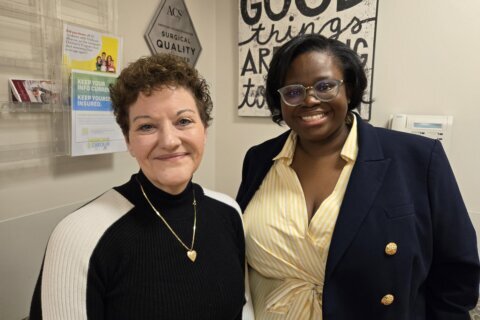It’s only fall, but believe it or not, the “winter blues” may already be setting in. Its medical name is seasonal affective disorder, or SAD, and if it’s arrived for its annual visit, there are tips you can follow to combat the symptoms.
Dr. Norman Rosenthal is a psychiatrist and clinical professor of psychiatry at Georgetown University School of Medicine. He said SAD symptoms kick in gradually, so the condition is hard to detect.
“We feel more tired, we’ve got less energy, difficulty waking up in the morning, and we begin to eat a little more sweets and starches and gain weight,” Rosenthal said.
Those symptoms can have a negative impact on a person’s work life and even personal relationships.
According to Rosenthal, who authored the book “Defeating SAD,” some people have a genetic predisposition to the disorder, but for others, a lack of light and stress can be causes as well.
To make up for the loss of sun during the cold winter months, special light boxes can help, according to Rosenthal, but not all will do the trick.
“They have to be large enough to give off enough light and they work best if you use them in the morning and you use them regularly,” he said.
Also, Rosenthal said getting out and exercising is key.
“No light box can compete against the light coming off the heavens, even on a cloudy day,” Rosenthal said.
Also, a lack of sun at home is a good excuse for planning trips to warmer locales during the winter months, Rosenthal said, because it can lift your mood.
Rosenthal said people dealing with SAD should consider signing up for a gym or yoga studio ahead of the winter.
“When you don’t feel like getting out of bed and there’s a trainer or yoga class or something waiting for you, you’re much more incentivized,” he said.
Rosenthal also said it’s important to keep getting out and socializing.
“Don’t become a hermit, because then you lose all the dopamine, that sort of joy neurotransmitter that comes from engaging with other people,” he said.
Rosenthal also said for some, cognitive behavioral therapy can help train you to fight the winter blues. An appointment with a psychiatrist may be needed if the symptoms become too severe.
“If these natural remedies don’t work, there are medicines out there, and they can be extremely effective,” he said.








